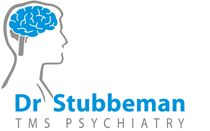
Tag Archives: TMS


tDCS-induced Modulation of GABA Levels and Resting-State Functional Connectivity in Older Adults
Transcranial direct current stimulation (tDCS) modulates human behavior, neuronal patterns and metabolite concentrations, with exciting potential for neurorehabilitation.
Mood-Boosting Magnets Might Help Treat Depression
One of the leading causes of disability in the United States isn’t physical—it’s mental. According to the Anxiety and Depression Association of America (ADAA), 15 million adults—approximately 6.7 percent of the population—suffer from major depressive disorder.
Improving Memory with Magnets
Using that data, researchers then applied transcranial magnetic stimulation (TMS) at the same theta frequency to the subjects while they performed the same tasks, to enhance the theta waves and measure the effect on the subjects' memory performance.
Efficacy of theta burst stimulation (TBS) for major depression: An exploratory meta-analysis of randomized and sham-controlled trials
Theta burst stimulation (TBS) has been proposed as a novel treatment for major depression (MD). However, randomized and sham-controlled trials (RCTs) published to date have yielded heterogeneous clinical results and we have thus carried out the present systematic review and exploratory meta-analysis of RCTs to evaluate this issue.
Brain stimulation for Alzheimer’s disease patients shows promise
Over six weeks, she received a strong kind of TMS called "theta burst stimulation". The treatment can target four sections of the brain in 12 minutes, compared to standard TMS which targets one section for 20 to 30 minutes. The high-frequency bursts to the left and right frontal and the left and right parietal parts of the brain cause the neurons to fire, boosting activity and strengthening the brain's networks.
Transcranial magnetic stimulation: drug-free treatment for depression
TMS causes the nerves in the brain to fire as opposed to manipulating them with chemicals. "What we found in patients with depression is the activity in their brain is low there are areas in the brain that activity are very low so the nerves are not firing activity. I think I've tried everything out there, but there's side effects or it didn't help," said Andrew Rangel.
Evaluation of repetitive transcranial magnetic stimulation for treatment-resistant major depression and the impact of anxiety symptoms on outcome
Objective: The aim of this study was to evaluate the efficacy of repetitive transcranial magnetic stimulation (rTMS) in patients with treatment-resistant major depression and to explore the relationship between the outcome and comorbid anxiety symptoms.
Local psychiatrists use pulsed electromagnetic waves to treat depression
With progress at fighting her depression at a standstill, Hoffman’s therapist suggested that she contact South Charleston psychiatrist Dr. Dan Thistlethwaite at PsyCare Inc. to see if she was a good candidate for Transcranial Magnetic Stimulation, or TMS — a relatively new method of treating depression by directing pulses of stimulating electromagnetic energy to nerve cells in areas of the brain that involve mood control.
